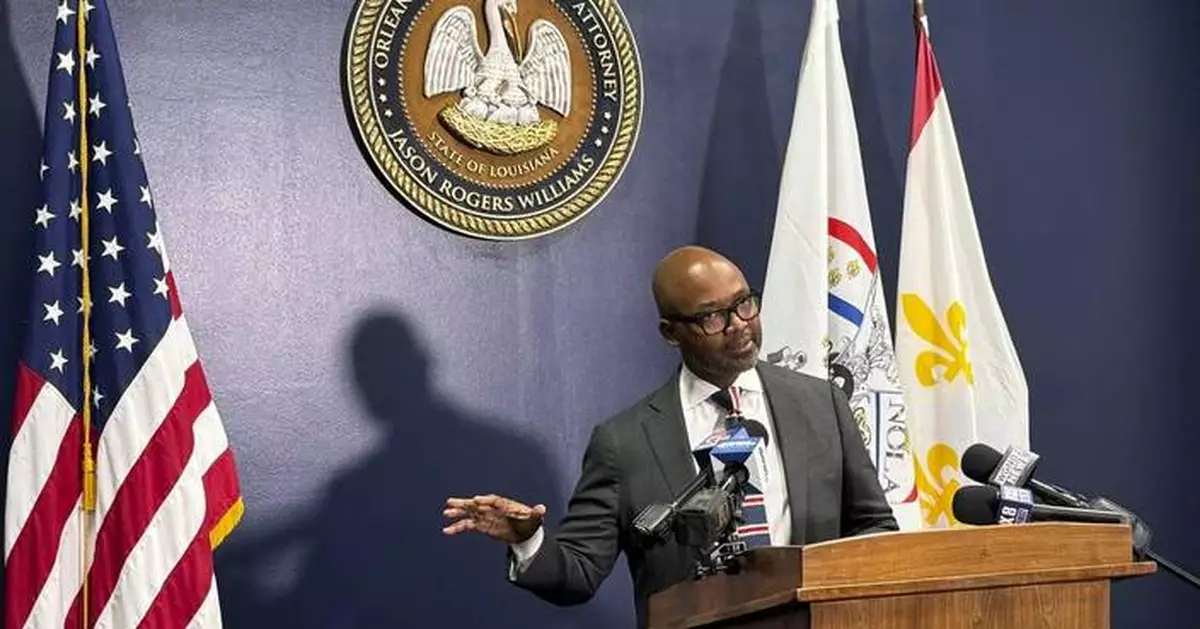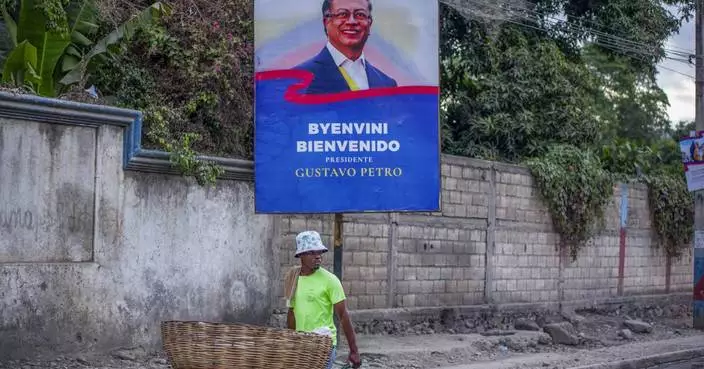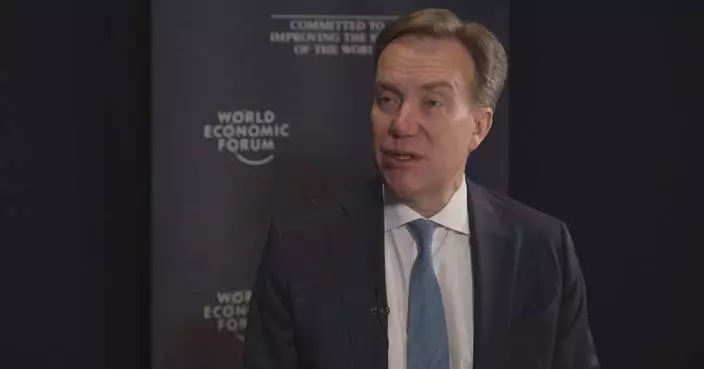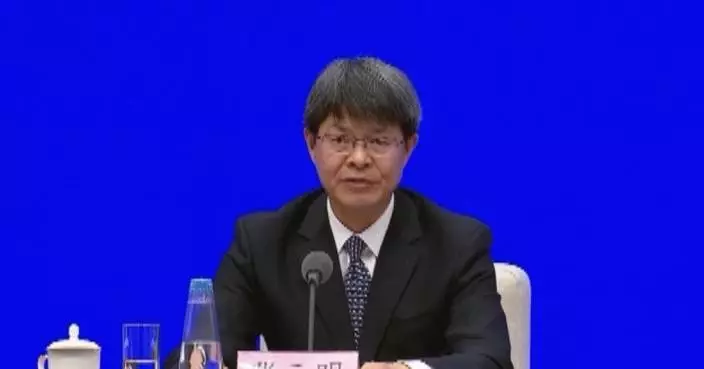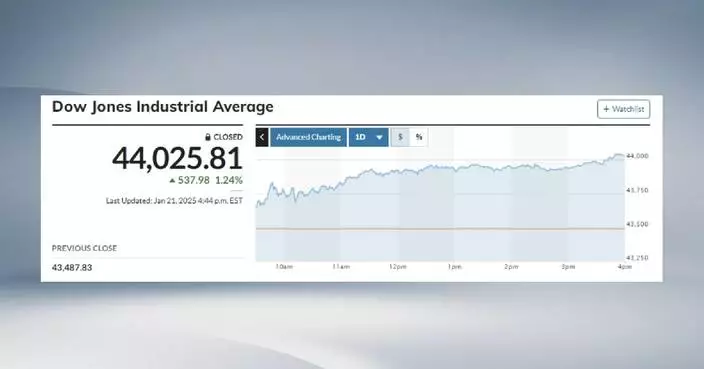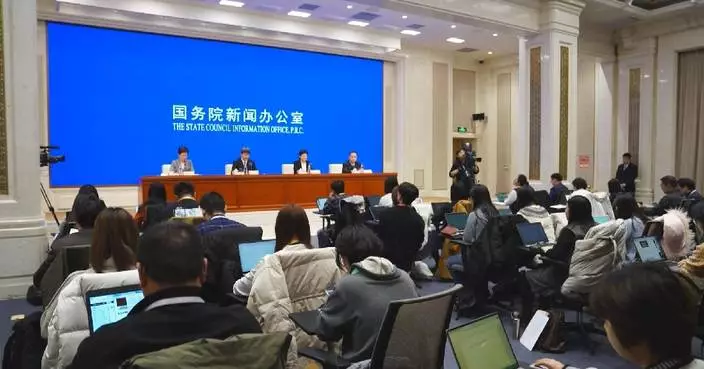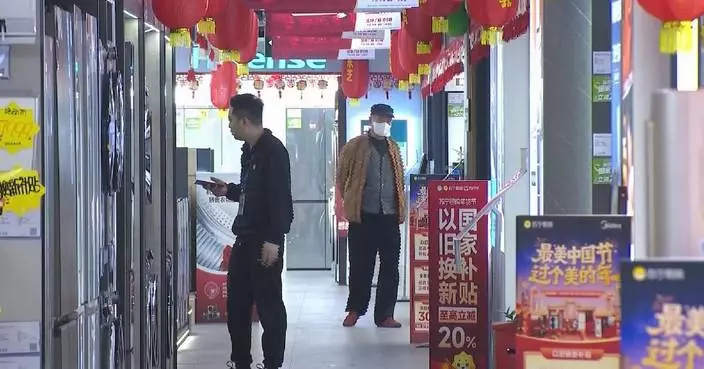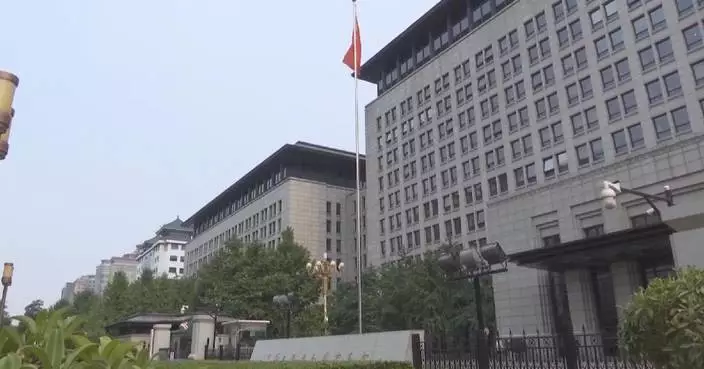NEW ORLEANS (AP) — New Orleans District Attorney Jason Williams promised to address the city's history of prosecutorial and police misconduct when he was elected four years ago, but now he's facing an investigation by Republican politicians who are concerned he is abusing his power.
Williams, a Black Democrat in an overwhelmingly conservative state, replaced a hard-nosed, tough-on-crime incumbent when he was elected in 2020. Since then, he's focused on responding to what he describes as the “sins of the past” in New Orleans, and in a state which has one of the highest incarceration rates in the country. Conservative lawmakers and officials are concerned he is arbitrarily putting people convicted of violent crimes back on the streets given the state's high homicide rates in recent years.
Over the past three years, Williams' office reports having voided convictions or reduced sentences in several hundred cases via a process known as post-conviction relief that allows the court to consider new evidence after all other appeals have been exhausted. The landmark civil rights division of Williams’ office has reviewed old cases, leading to exonerations and plea-deal releases based on constitutional violations or legal practices his office considers unjust. Critics point out post-conviction relief was employed sparingly in the past by the district attorney's office.
Williams has agreed to appear before a state senate committee on Sept. 5 over his office’s use of post-conviction relief.
A new law passed by a Republican-dominated Legislature earlier this year went into effect in August, effectively stripping Williams of his ability to engage in post-conviction relief without the approval of the Republican Attorney General. But state legislators had previously enacted a law in 2021 allowing district attorneys to amend sentences, even in cases without clear legal error, through post-conviction plea agreements with approval from judges.
Since 2021, Williams’ office reports as of late May having voided more than 140 convictions and reduced sentences in at least 180 cases, often re-sentencing them to lesser charges.
Conservative lawmakers have expressed concern that Williams' office has been acting without transparency. Attorney General Liz Murrill said she is taking a “close look” at these cases and warned that convictions should not be changed “simply because the district attorney has a difference of opinion” from the courts and Legislature.
Williams is part of a wave of more than 50 progressive prosecutors who in the past decade have sought to reduce incarceration rates and review past cases where constitutional violations or excessive sentencing may have occurred. These prosecutors have more often faced blowback from ideological opponents at the state level than from the voters who elected them, typically in liberal cities with large Black populations, said Rebecca Goldstein, a law professor at the University of California, Berkeley.
The concerns raised by Louisiana officials are largely in response to a social media campaign driven by Laura Rodrigue, a former prosecutor and daughter of the previous district attorney. Her advocacy group Bayou Mama Bears has warned Williams is endangering public safety and highlighted instances where his office resentenced or released people convicted of violent crimes.
Williams has said there has been no misconduct in his office's use of post-conviction relief and that he is simply following through on his campaign promises.
“This is not just waking up and saying, 'Hey, let’s try something new,” Williams said. “This is listening to the community and answering and trying to deliver."
Williams has focused in particular on reviewing non-unanimous jury convictions. A 2020 Supreme Court ruling had declared these convictions unconstitutional. While the ruling did not automatically apply retroactively, Williams has not blocked people convicted prior to 2020 by non-unanimous juries from applying for post-conviction relief on these grounds.
The state has been in the process of reckoning with law enforcement practices rooted in white supremacist history such as non-unanimous jury convictions, said Colin Reingold, legal director of New Orleans-based advocacy group Promise of Justice.
Louisiana has one of the highest incarceration rates in the country, locking up 1,067 per 100,000 of the state’s residents, according to a recent report from the Prison Policy Initiative.
“If incarceration actually provided public safety we’d be the safest place in the country, but we’re not,” said Will Snowden, a law professor at Loyola University and former New Orleans public defender.
Following the election of a Republican-dominated state government last year, Louisiana's Legislature convened a special session on crime in February and passed new laws, including expanding methods to carry out the death penalty and eliminating parole for most people in the future.
Republican Governor Jeff Landry has stated these laws are necessary to “deliver true justice to crime victims” and “enact real change that makes Louisiana a safer state for all.”
Williams has maintained that rebuilding trust in the criminal justice system helps increase public safety and said his office engages with victims and their families as they consider post-conviction relief cases.
Despite the ongoing clash over post-conviction relief, Williams and the Attorney General’s office have said they are working productively together in other areas such as addressing juvenile crime.
This story has been updated to correct that Williams is a Democrat in a conservative state, not a district.
———-
Associated Press journalist Sara Cline in Baton Rouge contributed to this story.
Brook is a corps member for The Associated Press/Report for America Statehouse News Initiative. Report for America is a nonprofit national service program that places journalists in local newsrooms to report on undercovered issues. Follow Brook on the social platform X: @jack_brook96.
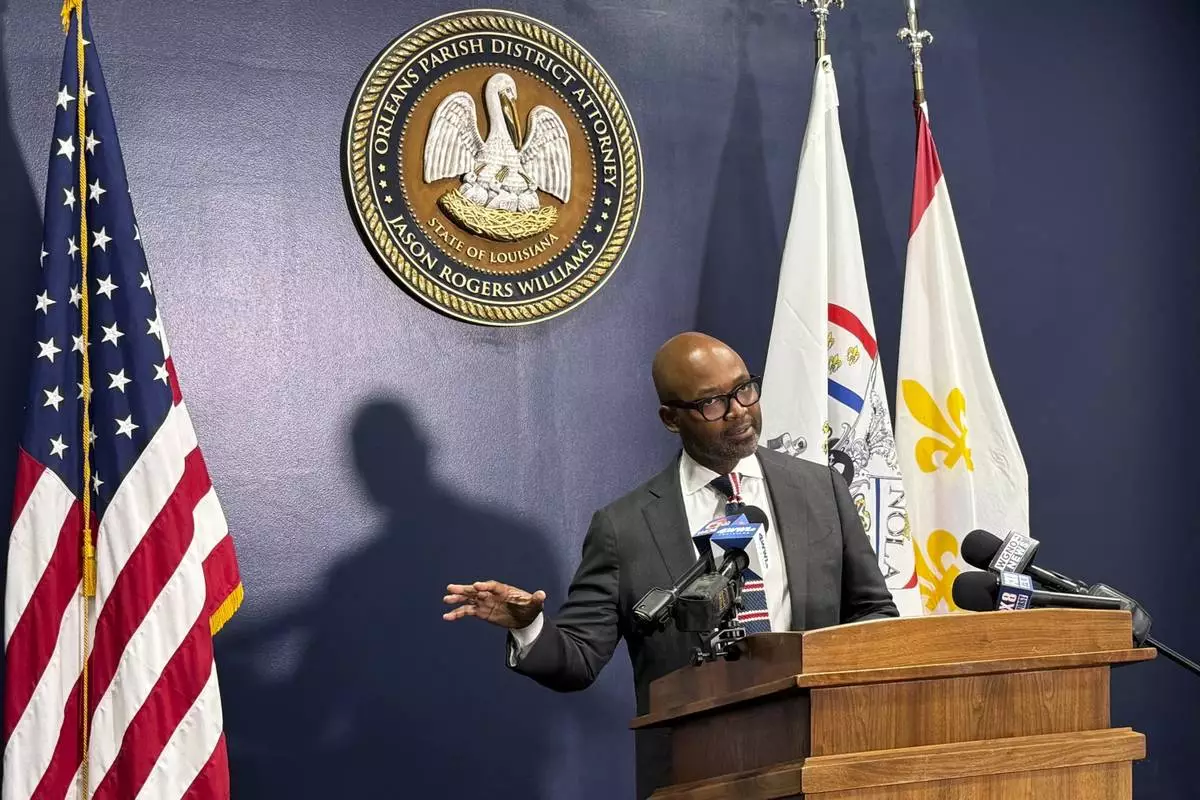
New Orleans District Attorney Jason Williams defended his office's use of post-conviction relief to void convictions or revise sentences at a press conference on Aug. 19, 2024, in New Orleans, La. (AP Photo/Jack Brook)
ROME (AP) — Human rights groups voiced outrage Wednesday after Italy released a Libyan warlord on a technicality, after he was arrested on a warrant from the International Criminal Court accusing him of war crimes and crimes against humanity.
The Hague-based court, for its part, issued a more diplomatic response but its anger appeared evident. In a stern statement late Wednesday, the ICC reminded Italy that it is obliged to “cooperate fully” with its prosecutions and said it was still awaiting information about what exactly Rome had done.
The reaction came after the Italian government on Tuesday released and sent back home Ossama Anjiem, also known as Ossama al-Masri, who heads the Tripoli branch of the Reform and Rehabilitation Institution, a notorious network of detention centers run by the government-backed Special Defense Force.
Al-Masri had been arrested Sunday in Turin, where he reportedly had attended the Juventus-Milan soccer match the night before. The ICC warrant, dated the day before, accused al-Masri of war crimes and crimes against humanity committed in the Mitiga prison in Libya starting in 2015 that are punishable with life in prison.
The ICC said he was accused of murder, torture, rape and sexual violence. It said the warrant was transmitted to member states on Saturday, including Italy, and that the court had also provided real-time information that he had entered Europe.
The court said it had reminded Italy at the time to contact it “without delay” if it ran into any problems cooperating with the warrant.
But Rome’s court of appeals ordered al-Masri freed Tuesday, and he was sent back to Libya aboard an aircraft of the Italian secret services, because of what the appeals court said was a procedural error in his arrest. The ruling said Justice Minister Carlo Nordio should have been informed ahead of time, since the justice ministry handles all relations with the ICC.
The ICC said it had not been given prior notice of the Rome court's decision, as required, and “is seeking, and is yet to obtain, verification from the authorities on the steps reportedly taken.”
Al-Masri returned to Tripoli late Tuesday, received at the Mitiga airport by supporters who celebrated his release, according to local media. Footage circulated online showed dozens of young men chanting and carrying what appeared to be al-Masri on their shoulders.
“This is a stunning blow to victims, survivors and international justice and a missed opportunity to break the cycle of impunity in Libya,” said Amnesty International’s Esther Major, deputy director of research for Europe.
Nordio appeared in the Senate on Wednesday for a previously-scheduled briefing, and was grilled by outraged opposition lawmakers who demanded clarity about what happened. Former Premier Matteo Renzi accused the right-wing government of hypocrisy given its stated crackdown on human traffickers.
“But when a trafficker whom the International Criminal Court tells us is a dangerous criminal lands on your table, it’s not like you chase him down, you brought him home to Libya with a plane of the Italian secret services,” said Renzi of the Italia Viva party. “Either you’ve gone crazy or this is the image of a hypocritical, indecent government.”
The Democratic Party demanded Premier Giorgia Meloni respond specifically to parliament about the case, saying it raised “grave questions” given the known abuses in Libyan prisons for which al-Masri is accused. Nordio didn't respond.
Italy has close ties to the internationally recognized government in Tripoli, on whom it relies to patrol its coasts and prevent waves of migrants from leaving. Any trial in The Hague of al-Masri could bring unwanted attention to Italy’s migration policies and its support of the Libyan coast guard, which it has financed to prevent migrants from leaving.
Human rights groups have documented gross abuses in the Libyan detention facilities where migrants are kept, and have accused Italy of being complicit in their mistreatment.
Two humanitarian groups, Mediterranea Saving Humans and Refugees in Libya, which have documented abuses committed against migrants in Libyan detention facilities, said they were incredulous that Italy let al-Masri go.
David Yambio, a 27-year-old from South Sudan who said he was abused by al-Masri while he was detained at the Mitiga prison in 2019-2020, said he felt betrayed by Italy. Yambio, who eventually escaped from the prison and arrived in Italy on a smuggler’s boat in 2022, said he had a “fleeting feeling of justice” when he heard that al-Masri had been arrested in Turin.
“Those who waited long before me, the Libyans who are victims of his criminal network, his war crimes, have been wanting for this day to come,” said Yambio, who received asylum and now lives in Modena and runs his Refugees in Libya advocacy group. “But when it came, it was immediately extinguished hours before it could even truly be felt in our hearts.”
But Tarik Lamloum, a Libyan activist working with the Belaady Organization for Human Rights which focuses on migrants in Libya, said Italy’s release of al-Masri was expected. He said his release shows the power of militias who control the flow of migrants to Europe through Libya’s shores.
“Tripoli militias are able to pressure (Italy) because they control the migrants file,” he told The Associated Press.
Militias in western Libya are part of the official state forces tasked with intercepting migrants at sea, including in the EU-trained coast guard. They also run state detention centers, where abuses of migrants are common.
As a result, militias — some of them led by warlords the U.N. has sanctioned for abuses — benefit from millions in funds the European Union gives to Libya to stop the migrant flow to Europe.
The European Commission spokesman reaffirmed all EU members had pledged to cooperate with the court.
“We respect the court’s impartiality and we are fully attached to international criminal justice to combat impunity," said EU commission spokesman Anouar El Anouni. In a 2023 summit, the EU leaders committed “to cooperate fully with the court, including rapid execution of any pending arrests,” he added.
Magdy reported from Cairo. Paolo Santalucia in Rome and Molly Quell in The Hague contributed.
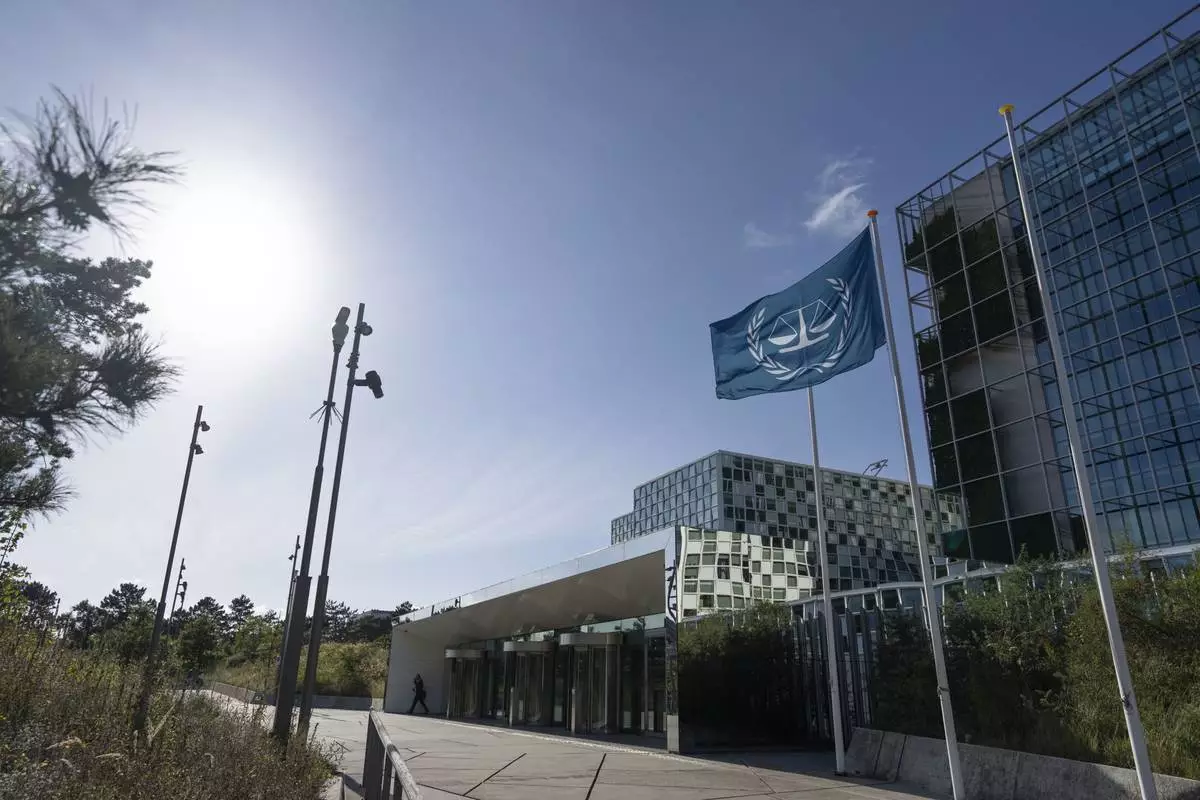
FILE - View of the ICC, the International Criminal Court, in The Hague, Netherlands, Monday, Sept. 16, 2024. (AP Photo/Peter Dejong, File)
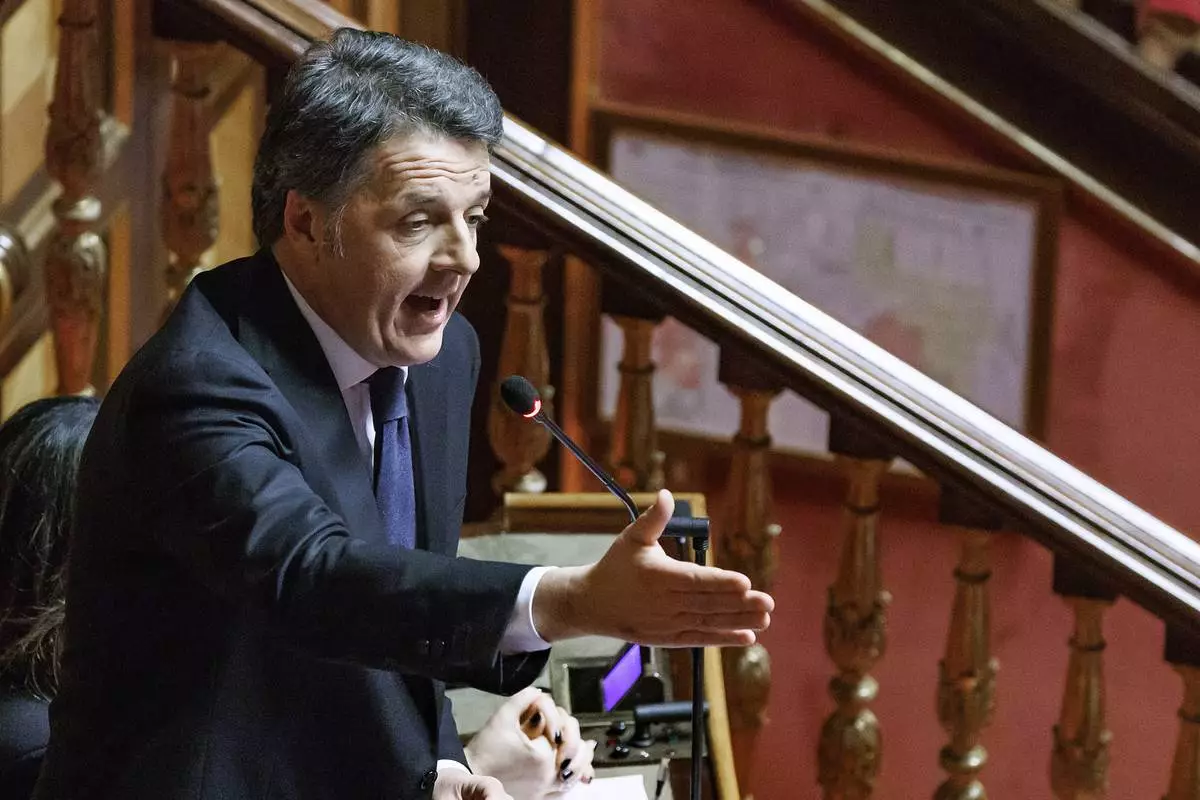
Former Prime Minister Matteo Renzi makes his remarks during Justice Minister Carlo Nordio's appearance at the Senate for the report on the justice administration, in Rome, Wednesday, Jan. 22, 2025. (Roberto Monaldo//LaPresse via AP)
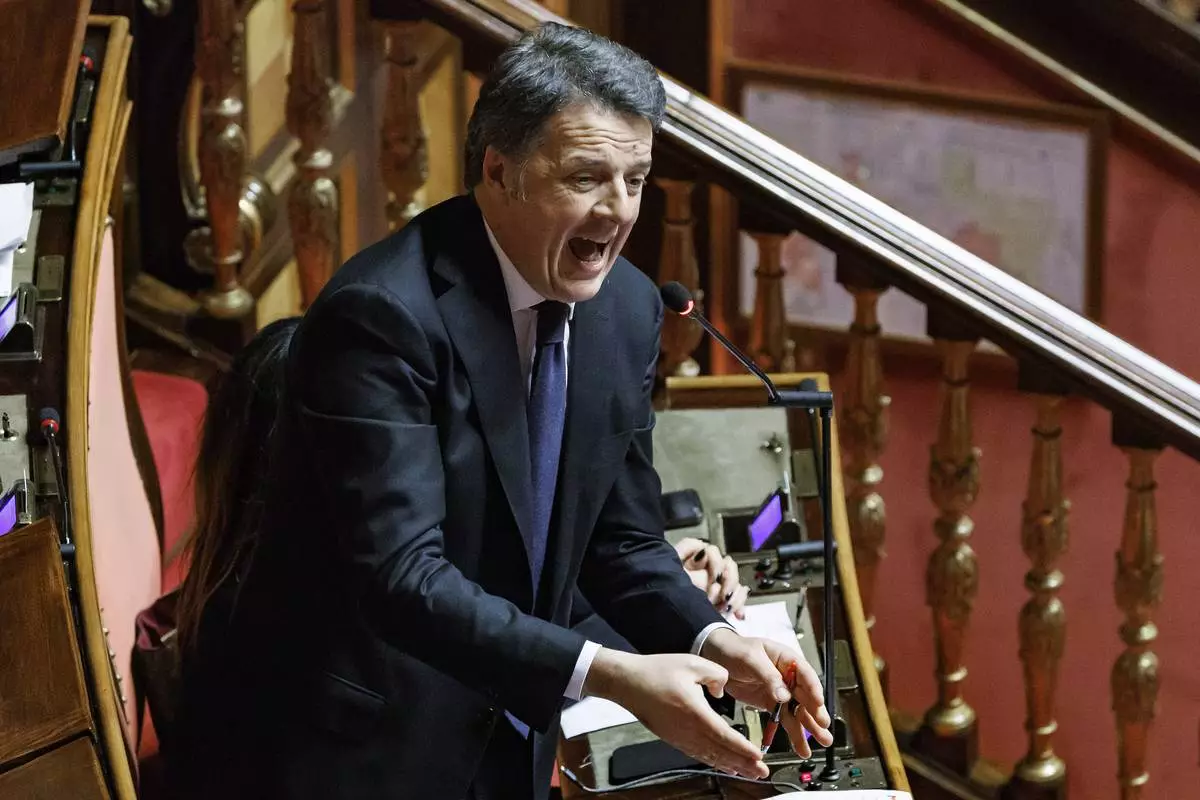
Former Prime Minister Matteo Renzi makes his remarks during Justice Minister Carlo Nordio's appearance at the Senate for the report on the justice administration, in Rome, Wednesday, Jan. 22, 2025. (Roberto Monaldo//LaPresse via AP)
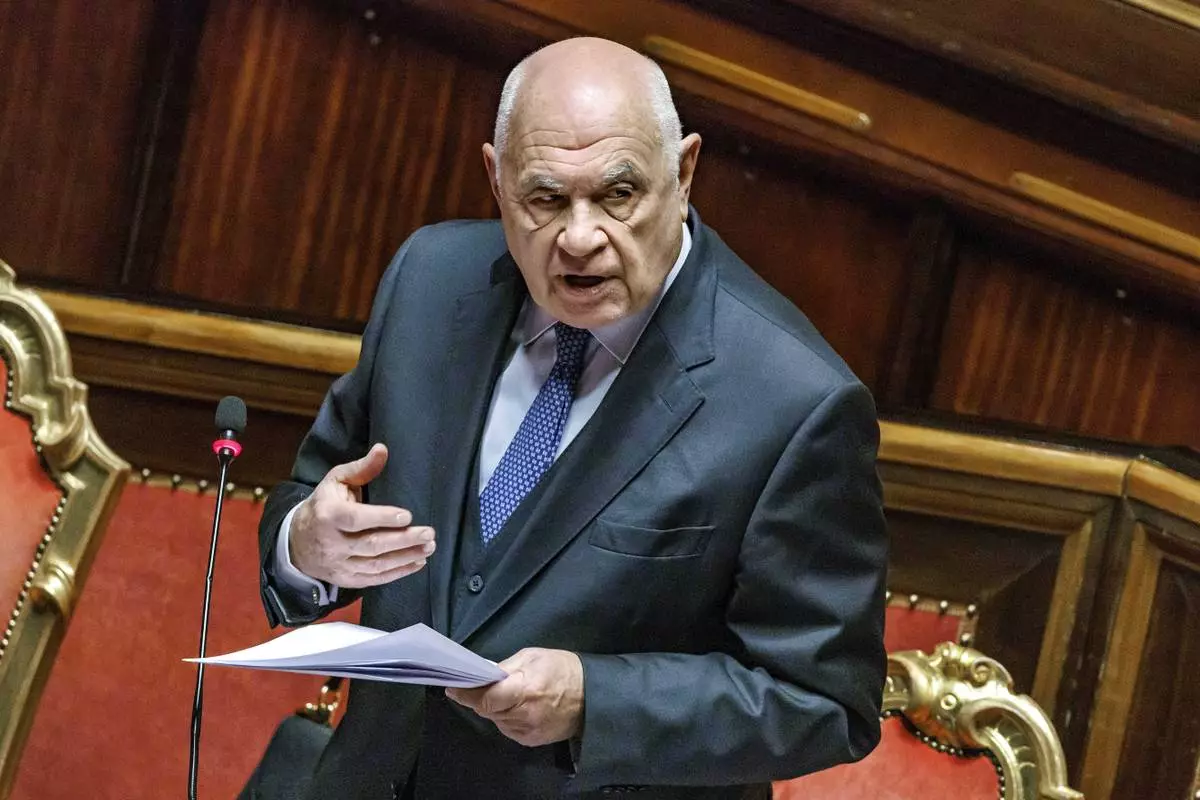
Justice Minister Carlo Nordio addresses the Senate during the report on the justice administration, in Rome, Wednesday, Jan. 22, 2025. (Roberto Monaldo//LaPresse via AP)
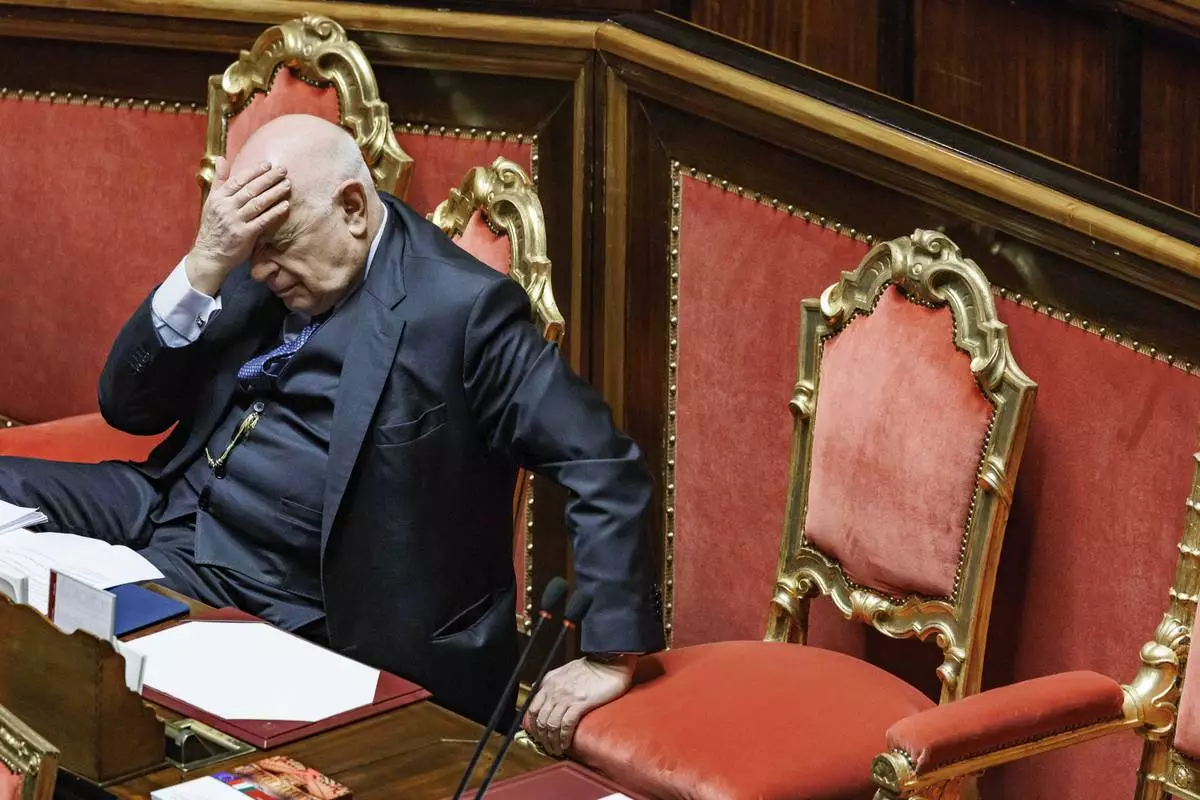
Justice Minister Carlo Nordio puts his hand to his head during the presentation of the report on the justice administration, at the Senate, in Rome, Wednesday, Jan. 22, 2025. (Roberto Monaldo//LaPresse via AP)
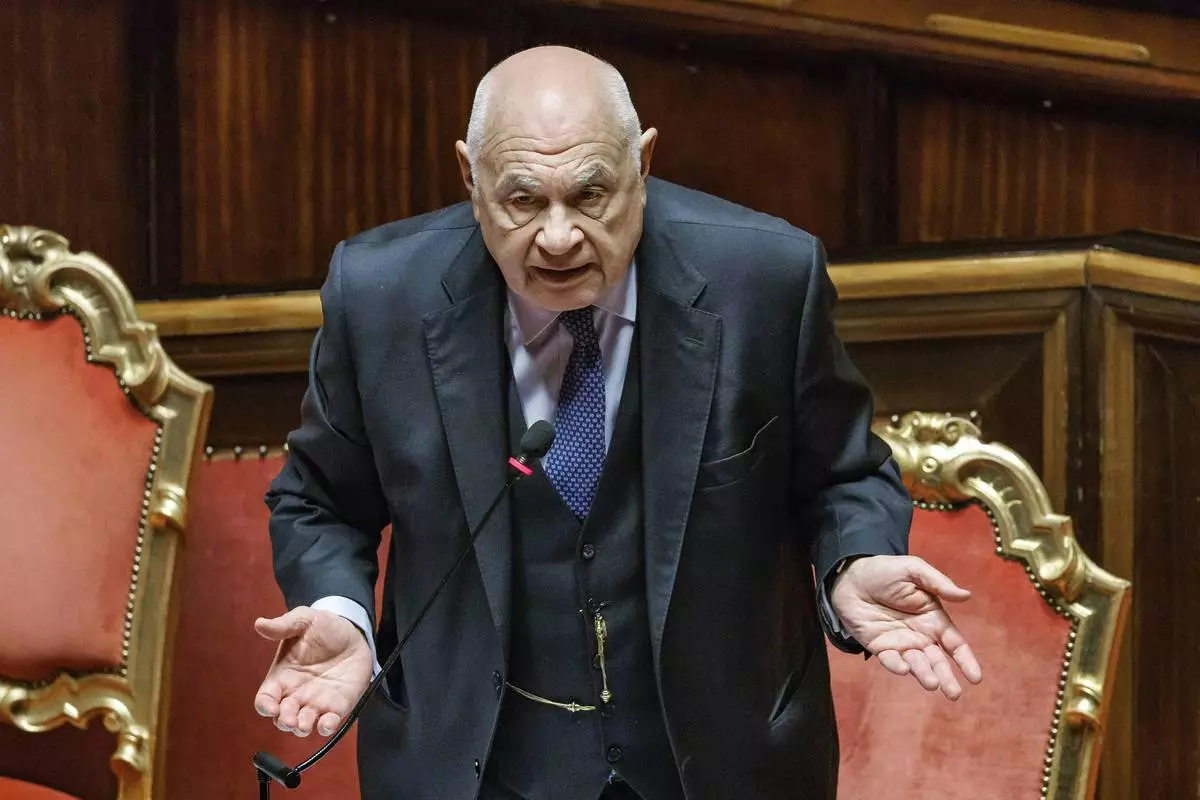
Justice Minister Carlo Nordio addresses the Senate during the report on the justice administration, in Rome, Wednesday, Jan. 22, 2025. (Roberto Monaldo//LaPresse via AP)



